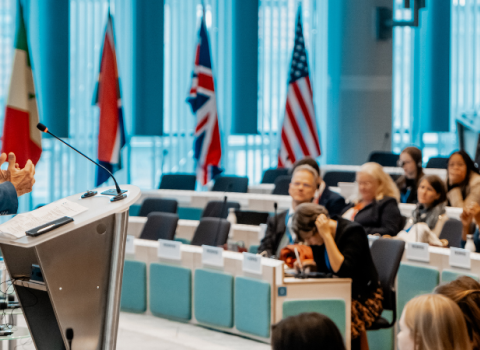Report shows that since 2021 eleven more countries have adopted open science policies. But there are to persistent problems with rising costs and uneven geographical spread

Open science policies are gathering pace, but further progress depends on wider culture change, improved monitoring and better policy support, UNESCO says.
“The practice of open science is growing globally but unevenly,” according to a UNESCO’s report on the implementation of its 2021 open science recommendations.
Open access policies aim to provide unrestricted and free of charge access to knowledge to everyone around the globe, to enable further knowledge generation. Since 2021, 11 more countries have adopted policies, strategies and legislation in support of this.
This is encouraging progress towards a more equitable scientific system and builds on a years-long push for open science. When UNESCO adopted its recommendations in 2021, half of academic articles published that year were open access, up from a third of those published between 2000 and 2021.
While UNESCO’s recommendations provided further incentive for change, progress hasn’t been even. Today, nearly 85% of open access repositories are in western Europe and North America.
More needs to be done to ensure open access is the norm everywhere, with UNESCO encouraging its member states to take action in seven areas. These include promoting the culture of open science, creating the right policy environment, investing more, building individual and institutional capacity, and promoting international cooperation.
Another issue is money. Publishing in open access journals is expensive for scientists, especially those with modest budgets in developing countries. To compensate for the lack of income from journal subscriptions, publishers charge so-called article processing fees (APCs) to cover their costs. These can amount to several thousand euros per article, which many say is unsustainable.
The answer, the report suggests, is finding alternative publishing methods using shared infrastructure as well as reimagining how research, and thus scientific publishing, is funded.
The EU is making headway here. In February 2023, EU science ministers adopted a joint call to make immediate and unrestricted open access publishing “the default mode in publishing, with no fees for authors.”
And while ushering in change, UNESCO wants everyone to talk to each other more. Right now, too little attention is given to engagement and dialogue, the report finds.
This is the first regular reports on the progress towards a more open science system. All member states committed to providing progress reports on the implementation of UNESCO’s open science recommendation every four years. The next edition of the progress report will be based on the first series of country reports.





 A unique international forum for public research organisations and companies to connect their external engagement with strategic interests around their R&D system.
A unique international forum for public research organisations and companies to connect their external engagement with strategic interests around their R&D system.